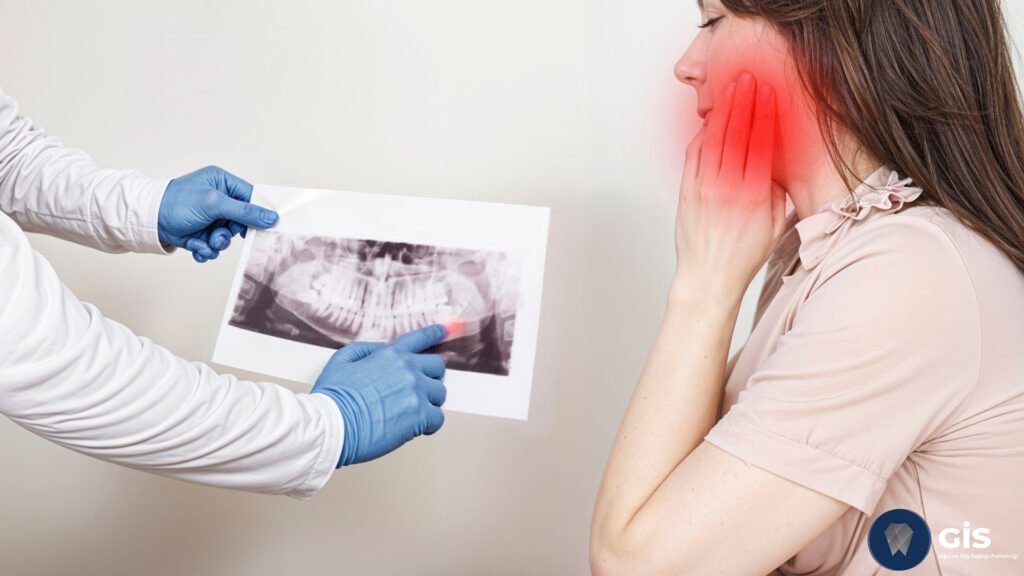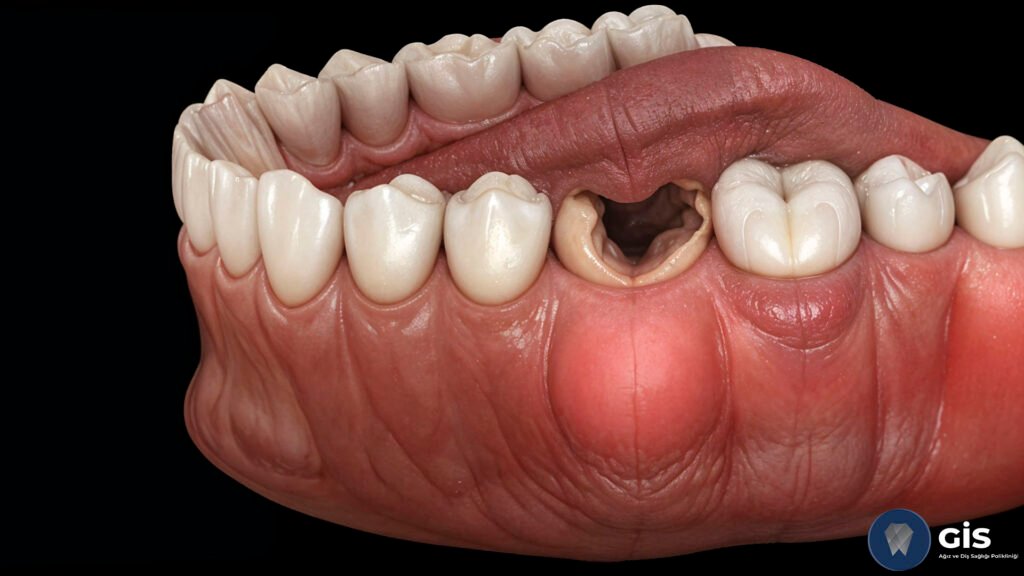Abscessed Toothache
Abscessed toothache is one of the most severe and disturbing pains encountered in dentistry. This condition occurs as a result of an infection in the tooth root or around the gums. This pus-filled sac caused by bacterial infection causes serious pain, swelling and sensitivity in the tooth and surrounding tissues. Abscessed toothache usually presents as a constant, throbbing pain and is sometimes accompanied by hypersensitivity to hot or cold foods.
This type of toothache can affect not only oral and dental health, but also overall health. If left untreated, the infection can spread to surrounding tissues and cause more serious health problems, even life-threatening conditions. Therefore, it is vital to see a dentist quickly when experiencing an abscessed toothache. Early intervention is the most effective way to relieve pain and prevent the spread of infection.
Why does an abscessed tooth hurt?
An abscessed tooth occurs as a result of a serious infection in the internal structure of the tooth and usually begins with the infection of the soft tissue called pulp located on the inside of the tooth. This pulp houses the nerves and blood vessels of the tooth, so when the infection reaches this area, obvious symptoms such as pain and swelling occur. As the infection progresses, an abscess develops, characterized by the accumulation of pus at the root of the tooth or in the surrounding tissues.
One of the most common causes of an abscessed tooth is tooth decay. Tooth decay is a bacterial infection that creates small holes in the surface of the tooth and deepens over time. If decay is left untreated and progresses deeply, it can reach the pulp inside the tooth and cause infection there. Another common cause is gum disease; These diseases cause infection in the gum tissues and, in advanced stages, can reach the tooth roots and cause abscesses.
Tooth injuries are also an important factor in the formation of abscessed teeth. Impacts, cracks or fractures to the tooth allow bacteria to enter the inside of the tooth, paving the way for infection. Such injuries are common, especially while doing sports or as a result of accidents. Additionally, poor dental hygiene is another important factor that increases the risk of abscessed teeth.
Not brushing your teeth regularly and not using dental floss causes bacteria to accumulate in the mouth, which can lead to tooth decay. When all these reasons are combined, the importance of regular dental care and dentist checks to protect dental health and prevent abscessed teeth becomes evident once again.

Symptoms of Abscessed Tooth Pain
The most obvious symptom of an abscessed tooth is severe toothache. This pain is usually sharp, throbbing and constant. The pain may become worse when chewing or touching the tooth. In addition, abscessed toothache may also manifest itself with the following symptoms:
- Swelling: Swelling may occur in the gums, face or jaw. This swelling may increase as the infection spreads.
- Fever: Fever may occur as a result of the body fighting the infection.
- Sensitivity: Hot or cold foods and drinks can cause extreme sensitivity in the area where the abscessed tooth is located.
- Bad Taste or Odor: When the pus inside the abscess drains, a bad taste or odor in the mouth may occur.
- Swollen Lymph Nodes: Lymph nodes in the neck or chin may become swollen and tender.
How to relieve abscessed toothache
An abscessed tooth does not heal on its own and requires professional dentistry intervention. An untreated abscessed tooth can cause infection to spread into the bloodstream and cause serious health problems. Treatment options for abscessed teeth are:
- Antibiotic Treatment: Your dentist may prescribe antibiotics to control the infection. However, antibiotic treatment is usually a temporary solution and other treatment methods are needed to completely clear the abscess.
- Root Canal Treatment: The infected pulp inside the abscessed tooth is cleaned with root canal treatment. In this process, the inside of the tooth is cleaned, disinfected, and then sealed with filling material. Root canal treatment is one of the most commonly used methods to save a tooth.
- Tooth Extraction: If the tooth is severely damaged and cannot be saved with root canal treatment, the tooth may need to be extracted. Tooth extraction is important to prevent the spread of infection.
- Surgical Intervention: In some cases, the abscess may need to be surgically drained. This procedure involves cleaning the infected area from the gums or tissues around the tooth root.

Abscessed toothache is a serious and urgent dental problem. When you feel this type of pain, it is important to consult a dentist without delay. Early intervention can save your tooth and prevent larger health problems. By taking care of your dental health, you can protect yourself from serious problems such as abscessed toothache. Remember, a healthy mouth is also of great importance for your overall health.



